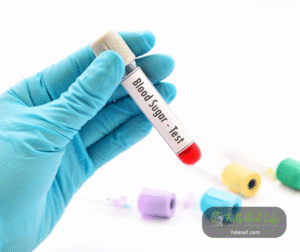Hormones are powerful chemical messengers that impact almost every aspect of your health. From your mood and energy levels to weight and reproductive health, these tiny molecules play a significant role. But what happens when they’re out of balance? And more importantly, what can you do to restore harmony?
The Role of Sex Hormones
Sex hormones, including pregnenolone, DHEA, estrogen, progesterone, and testosterone, are crucial not only for reproductive health but also for overall well-being. These hormones are produced in various glands such as the ovaries, adrenal glands, and even the brain. Let’s break down their roles and the symptoms that might signal an imbalance.
Pregnenolone: The Mother Hormone
Pregnenolone is often referred to as the “mother hormone” because it serves as a precursor to other hormones, including DHEA, estrogen, progesterone, and testosterone.
Symptoms of Imbalance: If pregnenolone levels are low, you may experience memory issues, fatigue, depression, and a decline in overall cognitive function.
What You Can Do: Support your body’s production of pregnenolone by managing stress, as chronic stress can deplete this hormone. Regular physical activity, adequate sleep, and a balanced diet rich in healthy fats are also crucial.
DHEA: The Vital Energy Hormone
DHEA (Dehydroepiandrosterone) is an androgenic hormone that supports energy, libido, and muscle strength. It’s produced by the adrenal glands, ovaries, and brain.
Symptoms of Imbalance: Low DHEA levels can lead to fatigue, low libido, mood swings, and decreased muscle mass. In contrast, high levels can cause acne, hair loss, and irritability.
What You Can Do: Focus on stress management techniques such as yoga or meditation, as stress is a major factor that can deplete DHEA. Regular exercise and a nutrient-dense diet also support healthy DHEA levels.
Estrogen: The Feminine Powerhouse
Estrogen is a key hormone in women, produced primarily in the ovaries. It’s crucial for reproductive health, mood regulation, and maintaining bone density.
Symptoms of Imbalance: Symptoms of low estrogen include hot flashes, night sweats, mood swings, and vaginal dryness. High estrogen, often linked to estrogen dominance, can cause weight gain, bloating, heavy periods, and breast tenderness.
What You Can Do: Maintaining a healthy weight and eating a diet rich in fiber can help with estrogen balance. Regular physical activity and reducing exposure to environmental toxins are also important.
Progesterone: The Calming Hormone
Progesterone is essential for regulating the menstrual cycle and supporting pregnancy. It’s also known for its calming effects on the nervous system.
Symptoms of Imbalance: Low progesterone can cause irregular periods, anxiety, insomnia, and infertility. High levels can lead to fatigue and dizziness.
What You Can Do: Ensure adequate intake of magnesium and vitamin B6, which are essential for progesterone production. Managing stress and getting enough sleep are also key to supporting progesterone levels.
Testosterone: The Strength Hormone
Although often associated with men, testosterone is also crucial for women, affecting libido, muscle strength, and energy levels.
Symptoms of Imbalance: Low testosterone can cause fatigue, low libido, depression, and loss of muscle mass. High levels can lead to acne, excess hair growth, and menstrual irregularities.
What You Can Do: Incorporate strength training into your routine to naturally boost testosterone levels. Eating a diet rich in proteins and healthy fats also supports testosterone production.
Simple Strategies to Balance Your Hormones
Balancing your hormones doesn’t have to be overwhelming. Here are some practical strategies:
- Prioritize Sleep: Aim for 7-9 hours of quality sleep each night. Good sleep hygiene, such as reducing blue light exposure before bed, can significantly improve your hormone balance.
- Manage Stress: Chronic stress is a major disruptor of hormonal balance. Incorporate daily stress-relief practices such as deep breathing, meditation, or gentle exercise like yoga.
- Eat a Nutrient-Dense Diet: Focus on whole foods, plenty of vegetables, high-quality protein, and healthy fats. Avoid excessive sugar and processed foods which can disrupt hormonal balance.
- Stay Active: Regular physical activity, especially strength training, can boost hormones like testosterone and support overall balance.
Supplement with Care
While supplements can be helpful, it’s essential to seek guidance from a professional. Supplements should be personalized based on your specific needs, so it’s crucial to test before making any assumptions.
Prioritize Your Hormonal Health
Your hormones play a crucial role in your overall well-being, influencing everything from your energy levels and mood to your reproductive health and longevity. Recognizing the signs of hormonal imbalances and taking proactive steps to address them is essential for maintaining your health and vitality.
Hormonal health isn’t a one-size-fits-all approach. Regular testing is crucial to understanding your unique hormonal profile and avoiding guesswork. Partnering with a professional can help you navigate this process effectively and tailor a plan that addresses your specific needs.
When was the last time you had your hormones thoroughly tested? If it’s been a while, or if you’re experiencing symptoms of imbalance, now is the perfect time to act. Schedule a complimentary consultation with me to discuss your concerns and create a personalized plan to restore balance and support your long-term health.








